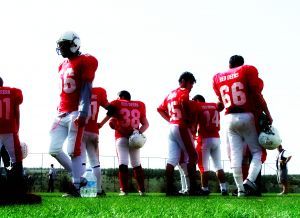DUI checkpoints occur nearly every day across the country, and up to several times a week in Florida. While some states refuse to allow them, sobriety checkpoints have been deemed constitutional by the U.S. Supreme Court and the Florida Supreme Court. Still, they continue to raise the ire of some drivers who insist they are an infringement on their liberties.
It was in this vein that a series of complied videos shot in recent Florida checkpoints went viral.
The clips show drivers approaching a DUI checkpoint. Each have a document placed in a clear, sealed bag outside that hangs outside their driver’s side window.

The document has the following text: “I remain silent. No searches. I want my lawyer.” The sign further instructs officers to place any citation under the windshield wiper. As the driver is neither required to sign a ticket or physically hand the officer his or her license, the note instructs officers the driver will not roll down the window. However, the paper does indicate, “I will comply with clearly-stated lawful orders.”
Continue reading
 Fort Lauderdale Criminal Attorney Blog
Fort Lauderdale Criminal Attorney Blog












